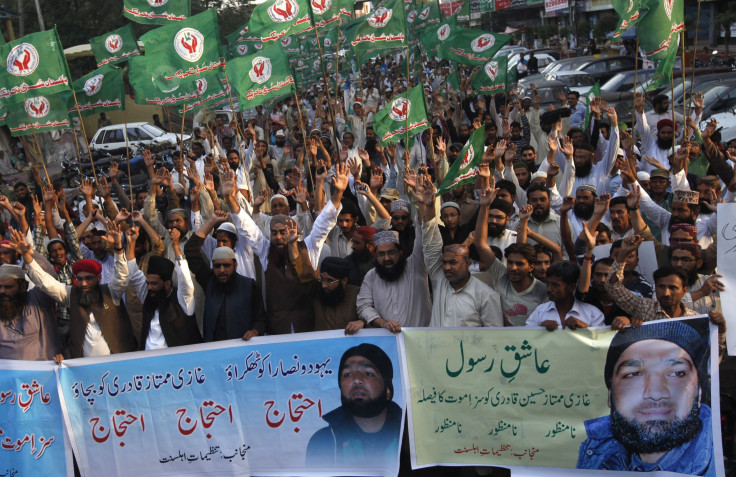Pakistan Hangs 12 Death Row Inmates In Largest Single-Day Execution Since Moratorium Lift

Pakistan on Tuesday hanged 12 convicts, the largest number put to death in a single day since the country temporarily lifted a moratorium on the death penalty in December, an interior ministry spokesman said. At least 27 convicts have been executed since the moratorium was lifted following a deadly attack on a Peshawar school that killed over 150 people, mostly children.
The spokesman reportedly said that the men were terrorists and murderers, or guilty of “heinous crimes.” After the Peshawar attack on Dec. 16, Prime Minister Nawaz Sharif partially lifted the moratorium following pressure on the government to do more to tackle the Islamist insurgency in the country. But last week, authorities widened the capital punishment policy to include all prisoners on death row whose appeals had been rejected.
Local media reports said that the latest executions took place in the cities of Multan, Karachi, Faisalabad, Rawalpindi, Gujranwala and Jhang. Pakistan first imposed its death penalty moratorium in 2008, when then-President Asif Ali Zardari signed it into effect. However, there were no civilian hangings in the country from that time until December 2014.
Currently, over 8,000 people remain on death row in Pakistan, and human rights groups have condemned the executions alleging that many of these convictions are of a dubious nature. Shafqat Hussain, who is on death row for the kidnap and manslaughter of a child, is due to be executed Thursday. However, his lawyers have reportedly claimed that his conviction was based on a confession extracted after nine days of torture.
"Pakistan’s judicial system is seriously flawed. Frequent use of torture to extract confessions, a lack of access to legal counsel, and long periods of detention without charge are just some of our concerns,” David Griffiths, deputy director of Amnesty International, said in a statement last month.
© Copyright IBTimes 2024. All rights reserved.





















